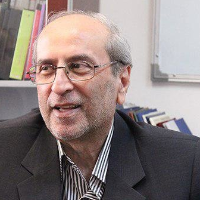Understanding Orthotic and Prosthetic Students' Experiences of Clinical Education Courses: A Qualitative Study
Author(s):
Article Type:
Research/Original Article (دارای رتبه معتبر)
Abstract:
Background & Objective
In clinical education courses, in interaction with the instructor and the clinical education environment, the students apply theoretical and practical learned concepts in real-world situations to real patients. Therefore, any weakness in the clinical education process will lead to weakness and reduce the efficiency of trainees. There seems to be a deep gap in the course of academic education in the field of orthotic and prosthetic and clinical practice of students. In other words, the existing clinical training does not give the ability for students to express their clinical skills. Therefore, this study aimed to investigate the perspectives and recognition of the experiences of students in the field of orthotic and prosthetic from the internship period.
Methods
This qualitative research conducted with a contractual content analysis approach on last year students in the field of orthotic and prosthetic of Iran University of Medical Sciences, Isfahan University of Medical Sciences, Welfare and Rehabilitation Sciences, and Red Crescent Institute of Higher Education in Iran. Sampling targeted with the highest diversity. Interviews were used as a group discussion to collect information. The process of collecting data continued to the saturation point. Shiyan and Shannon's theory was used to carry out the data analysis process. Accuracy, integrity, and precision of the research based on the criteria put forward by Guba & Lincoln (1985).
Results
After analyzing the data and categorizing the codes, the following themes emerged: a. “the existence of a curriculum”, b. “teaching and assessment methods”, c. “individual characteristics”, d. “students' communication methods in the clinical environment”, e. “space and educational facilities”, f. “organizational policies”, h. “educational approaches and procedures”. These themes had 19 subtitles. Participants in this study emphasized the following points as obstacles to effective education: the high number of internship groups, the number and variety of patients referred, lack of attention of the training group to the courses, lack of attention to the educational curriculum, the experience of the professors, lack of use of modern equipment in the construction of tools, Short duration of courses, No use of hospital centers for internship courses, Absence of a comprehensive guide to the construction of orthoses and prostheses, lack of morning browsing sessions, lack of independence of trainees in the manufacture of orthoses and prostheses and the provision of services, not clear the position and duties of trainees, clinical evaluation framework is not clear, lack or low quality of exams before and after the end of internship, anxiety and lack of interest of students in the field, privatization of orthotic and prosthetic centers, and lack of clinical education space.
Conclusion
Based on the results of the study, it seems that human characteristics are of particular importance in clinical education. Although intervention in human areas is not in the capacity of educational groups, their recognition can lead to the improvement of apprenticeships. Providing adequate patient diversity in clinical education sites, increasing the number of practical and clinical courses, greater and more practical emphasis on better implementation of clinical education headlines and balancing of clinical groups’ size may be helpful to enhance the clinical experience richness for students. Moreover, it is necessary to review the management and evaluation of clinical education through appropriate evaluation criteria to improve the clinical education status.Keywords:
Language:
Persian
Published:
Middle Eastern Journal of Disability Studies, Volume:8 Issue: 1, 2018
Page:
49
magiran.com/p1960839
دانلود و مطالعه متن این مقاله با یکی از روشهای زیر امکان پذیر است:
اشتراک شخصی
با عضویت و پرداخت آنلاین حق اشتراک یکساله به مبلغ 1,390,000ريال میتوانید 70 عنوان مطلب دانلود کنید!
اشتراک سازمانی
به کتابخانه دانشگاه یا محل کار خود پیشنهاد کنید تا اشتراک سازمانی این پایگاه را برای دسترسی نامحدود همه کاربران به متن مطالب تهیه نمایند!
توجه!
- حق عضویت دریافتی صرف حمایت از نشریات عضو و نگهداری، تکمیل و توسعه مگیران میشود.
- پرداخت حق اشتراک و دانلود مقالات اجازه بازنشر آن در سایر رسانههای چاپی و دیجیتال را به کاربر نمیدهد.
In order to view content subscription is required
Personal subscription
Subscribe magiran.com for 70 € euros via PayPal and download 70 articles during a year.
Organization subscription
Please contact us to subscribe your university or library for unlimited access!



